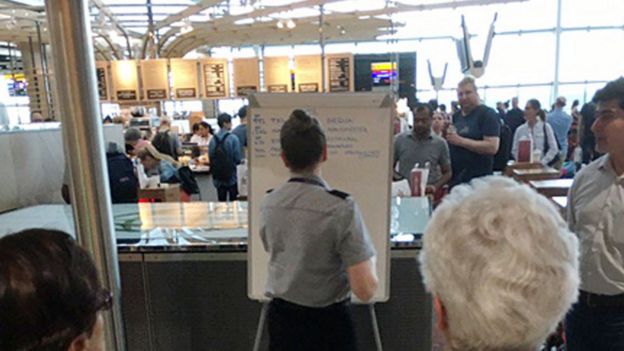Monica Pinheiro, license CC BY-NC-SA (CC)

"The person figured here is not an autonomous, rational actor but an unfolding, shifting biography of culturally and materially specific experiences, relations, and possibilities inflected by each next encounter (...) in uniquely particular ways." (Lucy Suchman, Human-machine reconfigurations: plans and situated actions, 2009, 281)
Jun 11, 2017
May 28, 2017
Apr 24, 2017
Ginko
Ginko Tree, the 'bearer of hope'. Amsterdam canals, June 2016. Monica Pinheiro, license CC BY-NC-SA (CC)
Feb 2, 2017
(im)mobility systems
"(...) interdependent systems of 'immobile' material worlds, and especially exceptionally immobile platforms (transmitters, roads, garages, stations, aerials, airports, docks) structure mobility experiences. The complex character of such systems stems from their multiple fixities or moorings, often on a substantial physical scale. Thus 'mobile machines', such as mobile phones, cars, boats, aircraft, trains and computer connections, all presume overlapping and varied time-space immobilities. There is no linear increase in fluidity without extensive systems of immobility."Anthony Elliott & John Urry (2010). Mobile Lives. Routledge, p. 20.
 |
October 16, 2009 Image by Monica Pinheiro, license CC BY-NC-SA (CC) |
Feb 1, 2017
Human-Built World
"Technology is messy and complex. It is difficult to define and to understand. In its variety, it is full of contradictions, laden with human folly, saved by occasional benign deeds, and rich with unintended consequences." Hughes, T. P. (2004). Human-Built World: How to Think about Technology and Culture. University Of Chicago Press.
 |
| Image by Monica Pinheiro, license CC BY-NC-SA (CC), November 17, 2009 |
Jan 21, 2017
Paths
What if success was measured by the number of beings living better? What if the purpose of life was making meaningful things like taking care of the world that sustains our lives? What if we defined impact indicators that measured the number of people that can access technology? What if our paths could lead to a better world instead of leading to more technology for the few? What if our policies could lay the foundations for more organic infrastructures that require less energy? What if our time was spent in meaningful activities? What if public service meant working for the betterment of the vast population? What if government listened to the majority of workers and what they say about the individuals that are nominated to run public organisms? What if ... Image by Monica Pinheiro, license CC BY-NC-SA (CC)
Jan 15, 2017
Sep 30, 2016
Carry on
"Remember that your strength is also built on what you lost." Image by Monica Pinheiro, license CC BY-NC-SA (CC)
Sep 24, 2016
sketch
"Instead of generic perfection all at once you would want to make a particular structure that started as a sketch, capable of evolving." Richard Sennette, 2009. The Craftsman.
by
Monica Pinheiro
0
comments
 Labels:
books,
building infrastructure,
home,
infrastructure,
sustainable
Labels:
books,
building infrastructure,
home,
infrastructure,
sustainable
Aug 15, 2016
Visualizing energy data
Chart from USA energy data ( http://energyliteracy.com ):
 |
| onsite interactive map shows energy wasted in different sectors |
"By clicking through the chart, you can see exactly how much energy is used for every activity. (...) Almost 1% is used just to pump natural gas around pipelines; 2% goes to making cardboard and other paper products. Around 16% is used to grow, distribute, and cook food. Looking at the total picture helps make the point that some of the ways that we think about energy aren't quite right. Refining petroleum uses about 6% of total energy in the country, but isn't considered when we think about fuel economy in cars. (...) Mining oil and gas uses even more energy." (in link)
by
Monica Pinheiro
0
comments
 Labels:
chart,
energy,
infrastructures,
USA,
visualizing information,
wast
Labels:
chart,
energy,
infrastructures,
USA,
visualizing information,
wast
Subscribe to:
Posts (Atom)






